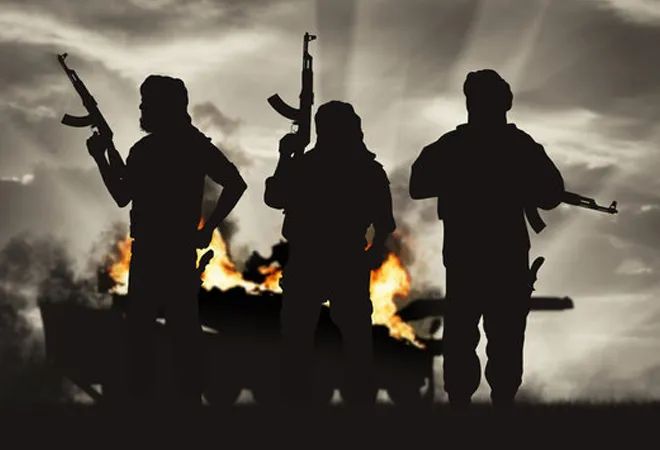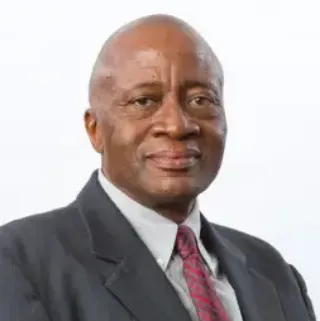
Terrorism is an ever-evolving threat that has left a large scar on humanity. According to the
Global Terrorism Index 2023, terrorist attacks became more deadly in 2022, killing on average 1.7 people per attack in 2022 compared to 1.3 per attack in 2021. Violent conflicts often trigger terrorism, with over 88 percent of attacks and 98 percent of terrorism deaths taking place in countries of conflict in 2022. According to this report, the Sahel Region remains the epicentre of terrorism due to systemic and infrastructural reasons. What drives the people of this region into conflict is the lack of vibrant and participative democracy as well as poor socio-economic development. There is an ever-increasing fight for natural resources, food, water, changing demography, ethnical identity, external interventions, geopolitical supremacy, and so on that push nations into conflict and in turn breed terrorist groups. Thus, nation-states must cooperate and join hands in this fight.
Violent conflicts often trigger terrorism, with over 88 percent of attacks and 98 percent of terrorism deaths taking place in countries of conflict in 2022.
Defining terrorism
The Rome Conference on the International Criminal Court in 2009 lamented the fact that there are “no generally accepted definitions of the crimes of terrorism and drug crimes could be agreed upon for the inclusion, within the jurisdiction of the court”
. This lack of a common definition left countries to define terrorism in their terms, leading to multiple interpretations. Despite this, the international community at large defines terrorism as any act that involves the intimidation or coercion of populations or governments through the threat or perpetration of violence, causing death, serious injury, or the taking of hostages. At the international level, nearly 16 conventions deal with the issue of terrorism
. However, even after multiple discussions, debates, and deliberations the international community could not agree upon a common definition of terrorism. In the 49
th session of
the United Nations General Assembly in 1996, India proposed a comprehensive international law to deal with terrorism. In the letter to the United Nations (UN), it was noted that there was a much need for an umbrella legislation that is legally binding and that consolidates all the conventions related to terrorism. It stated that most often, terrorists execute operations in one country and take refuge in another country and hence there was a great need to pass an international law in this regard.
The world after 9/11
The 9/11 terror attacks led to the adoption of Resolution 1373 by the United Nations Security Council (UNSC). This resolution established the
UN Counter-Terrorism Committee, which comprises 15 UNSC members to monitor this resolution's implementation. In September 2005, the
Security Council adopted Resolution 1624 which calls on all states, among other things, to prevent and prohibit incitement to commit a terrorist act by law
. In 2005, under the Chairmanship of then Secretary General of the UN, Kofi Annan, the Counter-Terrorism Implementation Task Force as a coordinating and information-sharing body was formed. This body included 24 representatives from various UN departments, specialised agencies, funds, and other entities such as Interpol. The UN adopted the UN
Global Counter-Terrorism Strategy in September 2006 as a resolution and annexure. It forms the basic instrument to enhance national, regional, and international efforts to counter-terrorism.
In 2021, the UN passed Resolution 2617 which reaffirmed that terrorism in all its manifestations forms one of the most serious threats to international peace and security and that any acts of terrorism are criminal and unjustifiable regardless of their motivations. The resolution further recognised that terrorism will not be defeated by military force, law enforcement measures, and intelligence alone, rather the rule of law, protection of human rights and fundamental freedoms, good governance, tolerance, and inclusiveness needed to be promoted.
The UN passed Resolution 2617 which reaffirmed that terrorism in all its manifestations forms one of the most serious threats to international peace and security and that any acts of terrorism are criminal and unjustifiable regardless of their motivations.
Cyberspace, gaming, and narcotics
Social media has
become the most effective way to radicalise and spread anti-national elements. Cyberspace's unique virtual characteristic makes it difficult to detect cybercriminals. Earlier terror was limited to physical spaces, but now with the evolution of IT technology, terror has become faceless. The latest bugs can be built at any place in the world and can be installed in any critical infrastructure with ease. This would cripple the economic infrastructure of the country weakening its strength.
Extremists also seek to exploit
gaming and gaming-related content. Terrorist organisations have propagated their ideologies through games such as Al- Qaeda’s
Quest for Bush, released in 2003, Hezbollah’s special force series, and Da’esh children’s game
Huroof. The
perpetrators of the 2011 Oslo attacks claim to have practised shooting using video games such as
Call of Duty. More recently, Christchurch and Buffalo attacks were live-streamed just like the
Let’s Play videos and replicated the visual style of widely known first-person shooter games. It is believed that there are approximately 3 billion gamers worldwide, and the average age of gamers is 34, thus covering the ideal age group that could be easily manipulated.
In 2020, an estimated 284 million people worldwide aged 15-64, the majority of whom were men, used
drugs. This translates to about 1 in every 18 people in that age group, or 5.6 percent, and represents an increase of 26 percent from 2010. Amongst this, roughly 209 million used cannabis, 61 million used opioids, 34 million used amphetamines, 21 million used cocaine, and 20 million used ecstasy. Drug syndicates are one of the major funders of terrorist organisations. As per the
national survey on the extent and pattern of substance use in India conducted by the Ministry of Health and Family Welfare, an estimated number of 2,000,000 people use cannabis, 4,000,000 use opioids, and 200,000 people use cocaine in the age group of 10-17. Drugs are being used to target the young population making them vulnerable to criminal activities in the future. Drugs often make their way into India t
hrough cross-border trafficking and the border states are the worst affected. Jammu and Kashmir (J&K) is one of the
worst-affected regions as a result of this illicit drug trafficking. According to the
Ministry of Social Justice and Empowerment, it is estimated that at least 1 million residents in a population of 12.5 million constituting 8 percent of the population were drug addicts in J&K in 2019-20. Amongst the total drug users, 1.67 percent of them were women. Thus narcotics, social media, and gaming are often seen as some of the most widely used ways to propagate extremist ideologies amongst a large section of the population.
Drugs are being used to target the young population making them vulnerable to criminal activities in the future.
Way forward
The Indian government has taken the initiative of pushing for the reformation of the UNSC. This is crucial as a reformed democratic security council will cater to the interests of the Global South. Aside from this, we must ensure that there is self-regulation within the gaming industry to ensure that games don’t form the basis for the propagation of extremist ideologies. Terror funding must be monitored and eliminated. Increased usage of crypto and the dark net must be strictly monitored. Cyber policing has to be strengthened. Critical infrastructure has to be guarded against faceless threats. Countries across the world must strengthen intelligence-sharing mechanisms. A strict international treaty on counter-terrorism must be pushed forward. Most importantly, the UN Charter must be amended and a terrorist attack on any country must be treated as an attack on humanity. Only when collective responsibility is mandated will the individual states refrain from using terrorism as an instrument of state policy. Multilateral engagements have to be increased across all spheres of governance. Activities such as sports are found to instil a feeling
of fraternity amongst individuals and keep individuals away from extremism. Individual ownership of resources needs to be replaced by a feeling of community ownership and the trusteeship doctrine should prevail. Civil society organisations and governments must promote more cultural and social exchanges of people across the countries. Terrorism tends to extend its tentacles in conflict-ridden countries with weak systems of governance, poor criminal justice system, and fragile economies. Hence, there is a need for every country to collectively work to identify these vulnerable countries and ensure that they achieve a significant level of progress across all sectors.
Prime Minister Modi has time and again reiterated that the world must embrace the teachings that “
Nathi Santi ParanSukham” meaning that there is no higher bliss than peace and “
Ekam Sad Viprah Bahudha Vadanti, Vasudaiva Kudumbakam” (Truth is one, sages call it by many names. the whole universe is one family)
. If the entire world embraces this principle collectively, we will see peace and universal fraternity becoming a reality. Only through cooperation, mutual collaboration, and confidence building amongst the comity of nations can we counter global terrorism today.
Sumalatha Ambareesh is Member of Parliament (Lok Sabha), Member, High-Level Advisory Grouping on Countering Terror and Violent Extremism Inter-Parliamentary Union
Adarsh Kuniyillam is a Policy Analyst
The views expressed above belong to the author(s). ORF research and analyses now available on Telegram! Click here to access our curated content — blogs, longforms and interviews.



 Terrorism is an ever-evolving threat that has left a large scar on humanity. According to the
Terrorism is an ever-evolving threat that has left a large scar on humanity. According to the  PREV
PREV



